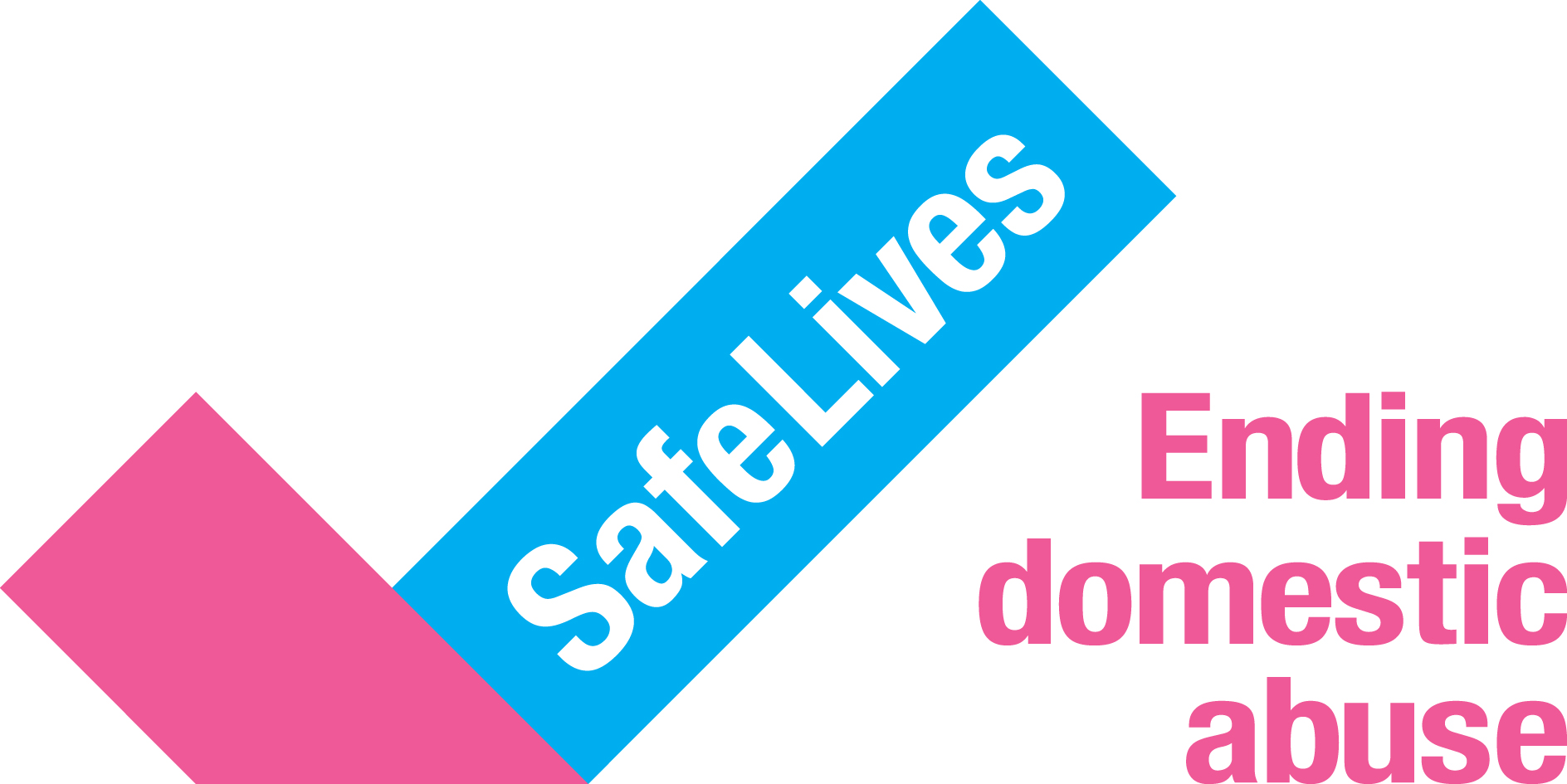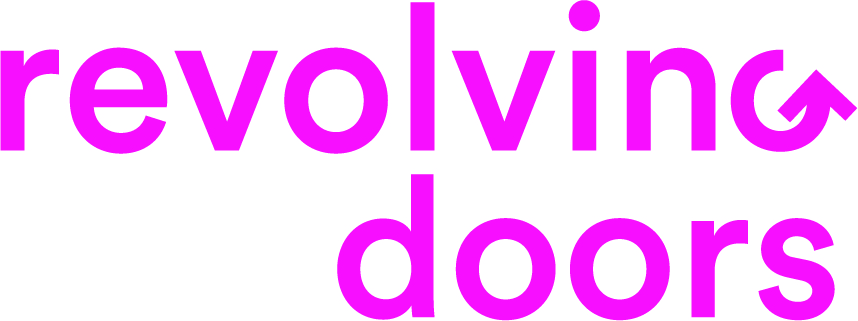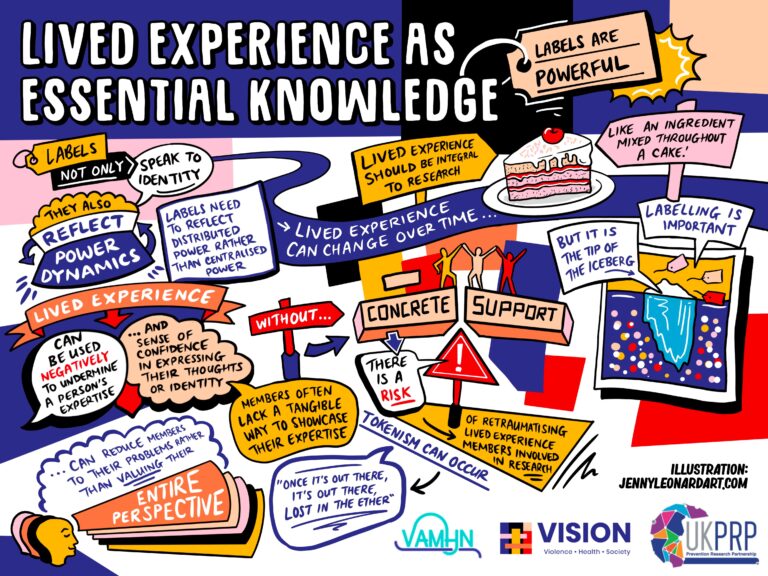1. SafeLives Safe Young Lives Authentic Voice Group
We are working with SafeLives’ Safe Young Lives Authentic Voice Group to explore adolescent domestic abuse, including the 16-year age threshold applied by the police. This work is VISION’s response to a question posed to us by Thames Valley Police: should the age at which the police formally recognise domestic abuse be reduced from 16 to 13? Working with the group will inform the development of a substantive and methodological framework for future research.
2. Violence, Abuse, and Mental Health Network Lived Experience Advisory Group
Members of the VAMHN Lived Experience Advisory Group have a wealth of experience in consultancy, training, and research. Drawing on these skills, as well as on their experiences of violence, abuse, and mental health difficulties, they have been steering VAMHN activities since their formation. Their work has included identifying priority areas for future research, developing VAMHN grant funding processes, and producing resources including webinars, podcasts, blogs, and reports. The VAMHN LEAG have been working with VISION researchers to advise on current and former research and to inform how experiential knowledge and evidence is integrated across VISION activities. Future work will involve the co-design of a research study to be conducted by the VAMHN LEAG.
3. Revolving Doors
Revolving Doors (RD) champions long-term solutions for justice reform that tackle the root causes of repeat, low-level crime and support people’s journeys towards better lives. They focus on the ‘revolving door’ group, those who have repeat contact with the criminal justice system whose behaviours are largely driven by unmet health and social needs and advocate for a system that recognises and addresses the drivers of contact with that system, namely trauma, poverty and discrimination including racism. The VISION consortium is partnering with RD to build lived experience coproduction into its crime and justice workstream through convening a lived experience research coproduction team for an initial 12-month period.



